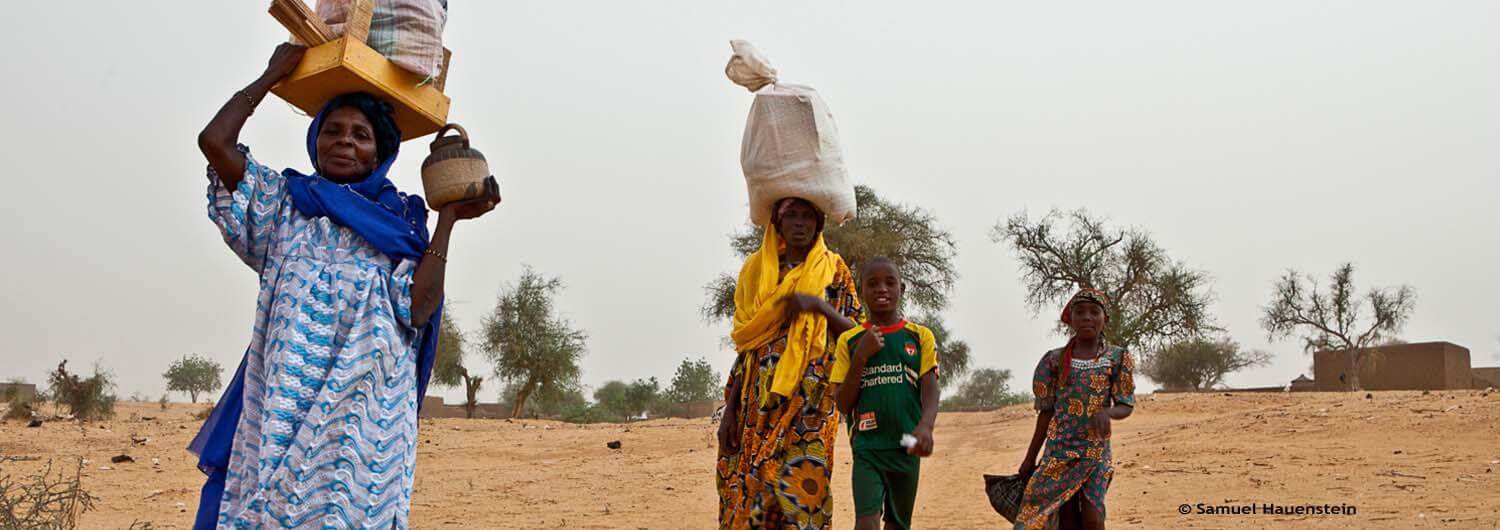News
Niger: victims of war urgently need protection and humanitarian assistance
24/06/16

Two of the largest attacks in the history of the current conflict in Niger killed unknown numbers of civilians and displaced over 40,000 people on 19 May and 3 June. Three weeks later, families continue to live in the open, under trees, without adequate access to basic life-saving assistance. The rains have started and children are at particular risk of illness and disease. Save the Children estimates that 60% of the displaced are children. Families are still not safe and those that fled faced a repeat attack on 16 June. 280,000 people are now living in displacement in Niger contributing to the 2.7 million people displaced across the Lake Chad Basin region.
Commitments recently made by world leaders at the World Humanitarian Summit in Istanbul and the second Regional Security Summit in Abuja for improved humanitarian assistance and protection of civilians urgently need to be turned into real-time actions in Niger. The world is currently focussed on a military solution to the insurgency, while the humanitarian and protection needs of 9 million people across the Lake Chad Basin region are being consistently forgotten.
12 international nongovernmental organizations (INGOs) working in Niger are calling on United Nations Member States when they come together during the ECOSOC Humanitarian Affairs Segment meeting in New York this week, for increased diplomatic efforts and financial aid to support the humanitarian response in Niger.
The humanitarian situation in Diffa is rapidly deteriorating and the current response is inadequate. Support needs to be given to the Government of Niger and humanitarian actors for improved capacity to prevent, prepare and respond to the growing humanitarian crisis. This includes improved coordination, community participation, and emergency stockpiling as well as better access to
information on needs, specific measures in place for children and women and quick emergency financing. Additionally, actions taken to safeguard civilians must include measures by the Government of Niger to build the confidence and trust of the local population. While the scale, urgency and complexity increases, funds are running dry.
“It is not weapons that create the greatest mortality during war; it is the secondary impacts of conflict that are the most devastating for civilians. Disease, hunger and the exhaustion of coping mechanisms can cause up to 90 percent of conflict-related mortality. Diffa was already prone to food insecurity, malnutrition, and maternal-child health risks, it is all the more crucial that the humanitarian response is rapid, to reduce preventable death” said Mohammed Chikhaoui, Oxfam Country Director
in Niger.
The undersigned INGOs urgently appeal to international donors to mobilise funding that is rapidly available, flexible and meets the survival and protection needs of hundreds of thousands of people caught-up in conflict in the Diffa region of Niger as well as Chad, Cameroon and Nigeria. Before this new emergency, the humanitarian needs in Diffa were only 28% funded. Now the needs are even greater. This crisis is severely overlooked with only 16% of required funds received for the overall
Lake Chad Basin response.
“Humanitarian support in Diffa is crucial – not only because it is life-saving, but also because it will help keep those in dire straits, especially youth, away from insurgent groups, which in a place where there is hardly any schooling, food, or jobs, can often be seen as the only option,” said Matias Meier, Niger country director at the International Rescue Committee.
Addressing the causes and consequences of this conflict requires innovative joint actions in collaboration with the affected governments and local civil society to address inequality, social and political marginalisation and poverty.
« Ce ne sont pas les armes qui créent le plus grand taux de mortalité pendant la guerre; ce sont les impacts secondaires des conflits qui sont les plus dévastateurs pour les civils. La maladie, la faim et l'épuisement des mécanismes d'adaptation peuvent entraîner jusqu'à 90 pour cent de la mortalité liée au conflit. Diffa était déjà sujette à l'insécurité alimentaire, à la malnutrition et aux risques pour la santé maternelle et infantile. Il est d'autant plus crucial que la réponse humanitaire soit rapide, afin de réduire les risques de mortalité », a déclaré Mohammed Chikhaoui, Directeur Pays Oxfam au Niger.
Les ONGI soussignées lancent un appel urgent aux donateurs internationaux pour mobiliser des fonds qui soient rapidement disponibles et flexibles et qui répondent aux besoins de survie et de protection de centaines de milliers de personnes prise dans le conflit dans la région de Diffa au Niger, ainsi qu’au Tchad, Cameroun et Nigeria. Avant cette nouvelle urgence des dernières
semaines, les besoins humanitaires à Diffa étaient financés à seulement 28%. Maintenant, les besoins sont encore plus grands. Dans l’ensemble du bassin du lac Tchad, la crise est gravement négligée avec seulement 16% des fonds nécessaires reçus pour assurer une réponse adéquate. « L'aide humanitaire à Diffa est cruciale - non seulement parce qu'elle permet de sauver des vie, mais aussi parce qu'elle contribue à garder ceux qui se trouvent dans une situation désespérée, en particulier les jeunes, à l'écart des groupes d'insurgés, qui, dans un endroit où il n'y a guère de scolarité, de nourriture, ou d’emplois, peuvent souvent être vus comme la seule option disponible », a déclaré Matias Meier, Directeur Pays Niger de International Rescue Committee (IRC).
Traiter les causes et les conséquences de ce conflit exige des actions conjointes innovantes en collaboration avec les gouvernements concernés et la société civile locale pour lutter contre les inégalités, la marginalisation sociale et politique et la pauvreté.